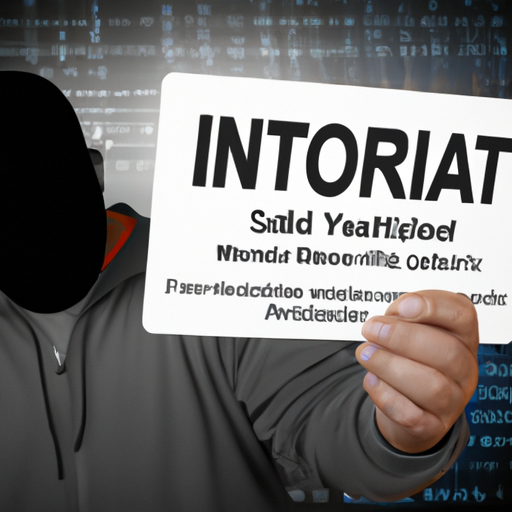-
Table of Contents
“Protect your identity – don’t let identity theft steal your future!”
Introduction
Identity theft and identity protection are two of the most important topics in today’s digital world. Identity theft is the unauthorized use of someone else’s personal information, such as their name, Social Security number, credit card number, or other identifying information, to commit fraud or other crimes. Identity protection is the process of protecting one’s personal information from being stolen or misused. It involves taking steps to protect one’s identity, such as using strong passwords, monitoring credit reports, and being aware of potential scams. With the rise of online fraud and identity theft, it is important to understand the risks and take steps to protect yourself.
The Benefits of Using Identity Protection Services
Identity protection services are becoming increasingly popular as the threat of identity theft continues to grow. Identity protection services provide individuals with a variety of benefits that can help protect their personal information and financial assets.
One of the primary benefits of using identity protection services is the ability to monitor your credit report. Identity protection services can monitor your credit report for any suspicious activity, such as new accounts being opened in your name or changes to existing accounts. This can help you detect any potential identity theft before it becomes a major problem.
Another benefit of using identity protection services is the ability to receive alerts when your personal information is used. Identity protection services can alert you when your Social Security number, credit card numbers, or other personal information is used in an unauthorized manner. This can help you take action quickly to prevent any further damage.
Identity protection services can also help you recover from identity theft if it does occur. Many services offer assistance with filing police reports, contacting creditors, and other steps that may be necessary to recover from identity theft. This can help you save time and money in the long run.
Finally, identity protection services can provide peace of mind. Knowing that your personal information is being monitored and protected can help you feel more secure and confident in your online activities.
Overall, identity protection services can provide a variety of benefits that can help protect your personal information and financial assets. By monitoring your credit report, receiving alerts when your personal information is used, and providing assistance with recovering from identity theft, identity protection services can help you stay safe and secure online.
How to Spot and Report Identity Theft
Identity theft is a serious crime that can have long-term financial and emotional consequences. It is important to be aware of the signs of identity theft and to know how to report it if it occurs.
Signs of Identity Theft
There are several signs that may indicate that someone has stolen your identity. These include:
• Unfamiliar accounts or charges on your credit report.
• Unexpected bills or collection notices for services or products you did not purchase.
• Denial of credit for no apparent reason.
• Receiving credit cards that you did not apply for.
• Receiving calls or letters from debt collectors for debts you do not owe.
• Receiving emails or letters from companies confirming changes to your account that you did not make.
• Being notified by the IRS that more than one tax return was filed in your name.
Reporting Identity Theft
If you suspect that your identity has been stolen, it is important to take action immediately. Here are some steps to take:
• Contact the fraud departments of the three major credit bureaus (Equifax, Experian, and TransUnion) to place a fraud alert on your credit report.
• Contact your financial institutions and close any accounts that have been compromised.
• File a report with your local police department.
• File a complaint with the Federal Trade Commission (FTC).
• Contact the Social Security Administration if your Social Security number has been compromised.
• Contact the IRS if you suspect someone has filed a fraudulent tax return in your name.
• Monitor your credit report regularly to ensure that no further fraudulent activity has occurred.
By being aware of the signs of identity theft and taking the necessary steps to report it, you can help protect yourself from the financial and emotional consequences of this crime.
The Impact of Identity Theft on Your Credit Score
Identity theft is a serious crime that can have a devastating impact on your credit score. It occurs when someone obtains your personal information, such as your Social Security number, credit card numbers, or bank account information, and uses it to commit fraud or other crimes. Identity theft can lead to a variety of financial losses, including unauthorized charges on your credit cards, fraudulent loans taken out in your name, and even criminal charges.
The most immediate and damaging effect of identity theft on your credit score is the unauthorized charges that can be made on your credit cards. These charges can quickly add up and can cause your credit score to plummet. Additionally, if the thief takes out a loan in your name, it will appear on your credit report and can also have a negative impact on your credit score.
Identity theft can also have long-term effects on your credit score. If the thief opens new accounts in your name, it can take months or even years to clear up the mess. During this time, your credit score will suffer as the fraudulent accounts remain on your credit report. Additionally, if the thief is able to obtain your Social Security number, they may be able to open new accounts in your name without your knowledge. This can lead to a significant drop in your credit score.
Finally, identity theft can lead to criminal charges. If the thief is caught and convicted, it can have a serious impact on your credit score. Even if the charges are eventually dropped, the fact that they were filed can remain on your credit report for up to seven years.
Identity theft is a serious crime that can have a devastating impact on your credit score. It is important to take steps to protect yourself from identity theft, such as regularly monitoring your credit report and using strong passwords for online accounts. Additionally, if you do become a victim of identity theft, it is important to take action quickly to minimize the damage to your credit score.
The Different Types of Identity Theft and How to Avoid Them
Identity theft is a serious crime that affects millions of people each year. It occurs when someone uses another person’s personal information, such as their name, Social Security number, or credit card information, without their permission to commit fraud or other crimes. There are several different types of identity theft, and it is important to be aware of them in order to protect yourself.
One type of identity theft is financial identity theft. This occurs when someone uses another person’s financial information, such as their credit card or bank account numbers, to make unauthorized purchases or withdrawals. To protect yourself from financial identity theft, it is important to keep your financial information secure. This means not sharing your credit card or bank account numbers with anyone, and using strong passwords for online accounts.
Another type of identity theft is medical identity theft. This occurs when someone uses another person’s medical information, such as their health insurance number, to obtain medical services or prescription drugs. To protect yourself from medical identity theft, it is important to keep your medical information secure. This means not sharing your health insurance number with anyone, and being careful about who has access to your medical records.
Finally, there is criminal identity theft. This occurs when someone uses another person’s personal information, such as their name or Social Security number, to commit a crime. To protect yourself from criminal identity theft, it is important to be aware of your surroundings and to not share your personal information with anyone.
Identity theft is a serious crime that can have serious consequences. By understanding the different types of identity theft and taking steps to protect yourself, you can help to reduce your risk of becoming a victim.
How to Protect Your Identity from Online Fraud
Online fraud is a growing problem, and it is important to take steps to protect your identity from being stolen. Here are some tips to help you stay safe online:
1. Use strong passwords. Create passwords that are at least eight characters long and include a combination of upper and lowercase letters, numbers, and symbols. Avoid using easily guessed words or phrases, such as your name or birthdate.
2. Be aware of phishing scams. Phishing scams are attempts to get your personal information by posing as a legitimate company or organization. Be wary of emails or websites that ask for your personal information, such as your Social Security number or bank account information.
3. Use two-factor authentication. Two-factor authentication adds an extra layer of security to your online accounts by requiring you to enter a code sent to your phone or email address in addition to your password.
4. Monitor your credit report. Check your credit report regularly for any suspicious activity. You can get a free copy of your credit report from each of the three major credit bureaus once a year.
5. Use secure websites. When making online purchases, make sure the website is secure by looking for the “https” in the URL. This indicates that the website is using encryption to protect your information.
By following these tips, you can help protect your identity from online fraud.
Conclusion
Identity theft and identity protection are two important topics that everyone should be aware of. Identity theft can have serious consequences, including financial loss, emotional distress, and even criminal charges. Fortunately, there are steps that can be taken to protect yourself from identity theft, such as regularly monitoring your credit report, using strong passwords, and avoiding giving out personal information online. By taking these steps, you can help protect yourself from identity theft and the potential damage it can cause.




